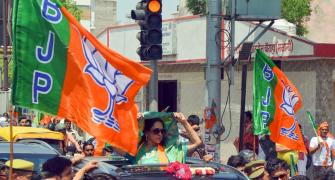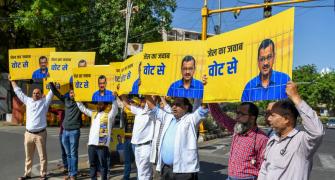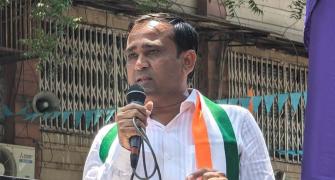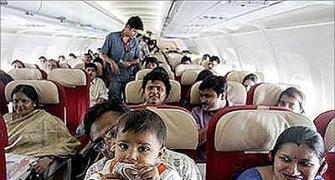The near-term fate of India's troubled privatisation programme is expected to be determined by the Gujarat election on Thursday.
Analysts say victory for the ruling Bharatiya Janata Party should give fresh momentum to the asset sales by strengthening the BJP's hand at the head of the fractious national coalition government. But defeat in Gujarat by the opposition Congress party could cripple the programme.
"A (BJP) victory will give the ruling party the confidence to make changes without the fear of instability," said Sanjay Sachdeva, managing director at IDBI Principal AMC.
So a BJP victory should fuel a rally in India's stock markets, where the pace of privatisations has been the main driving force for most of this year.
"If the BJP loses, markets could come off as I don't see divestments happening," said Bobby Surendranath, fund manager at Aviva Life Insurance. "It will also become more difficult for the BJP to control the various factions of the coalition."
Analysts' predictions, however, come with a health warning.
Too large a victory for the BJP in Gujarat's 182-seat state assembly could actually undermine the privatisation programme by strengthening the hand of hardline Hindu fundamentalists who oppose state sales in industries they regard as strategic.
"The market's euphoria will be short-lived as I see these hardliners obstructing the path of privatisation and other reforms," said a Mumbai fund manager who declined to be named.
BJP's outgoing chief minister in Gujarat, Narendra Modi, has fought the election on a hardline Hindu revivalist platform in a bid to rally Hindu votes. Earlier this year the state suffered India's worst Hindu-Muslim clashes in a decade, polarising ethnic groups.
Analysts say that if these tactics win they are likely to be extended to the rest of the country to boost the BJP's electoral fortunes ahead of a national election due by 2004.
It will also strengthen the hand of the BJP's ideological parent, the Rashtriya Swayamsevak Sangh, where Modi has his roots.
The RSS, which exerts a big influence over the ruling BJP, believes in economic self-sufficiency and protecting employment rather than in free-market privatisations, although it is not totally opposed to sales of assets it sees as non-strategic.
Privatisations unpopular with voters
An outright victory for Congress, meanwhile, is likely to fuel restlessness among the BJP's national coalition allies, who are already wary about a privatisation programme they fear could threaten jobs, and therefore votes.
"The fact of the matter is that the BJP and its allies are completely divided over the issue," said Saumitra Chaudhuri, economic adviser to Indian credit rating agency ICRA.
"A lot of people are not convinced that privatisation is in the national interest," he said. "There are no votes to be won on privatisation... The problem with privatisation is, electorally speaking, there are no positives (and) lots of negatives."
India's programme to sell Rs 120 billion (Rs 1.2 billion) in assets in the year to March 2003 has been the biggest draw for Indian stock markets this year. As investors have fled the battered technology sector, foreign funds have bought shares of state firms in the hope of that sales would unlock value.
But by September the programme had run into rough weather as differences arose between members of the national coalition and a decision on the privatisation of two major state oil companies, Hindustan Petroleum Corp Ltd and Bharat Petroleum Corp Ltd, was deferred by three months.
On Monday, Divestment Minister Arun Shourie said the government would go ahead with privatising the two oil firms, but his failure to set a timetable for the asset sales left markets jittery about whether they would actually happen.
When the dispute over the privatisation of the oil companies arose in September, hardline Hindu groups threw their weight behind those calling for a stop to these "strategic" sales.
India's stock market has been one of the best performers in the world in 2002, driven by the divestment programme, which gathered pace early this year when the government sold controlling stakes in telecoms firm Videsh Sanchar Nigam Ltd, oil retailer IBP Ltd and car-maker Maruti.
While the 30-issue Bombay index has gained nearly one per cent in 2002, the benchmark index of state-run company stocks has surged 70 per cent.








